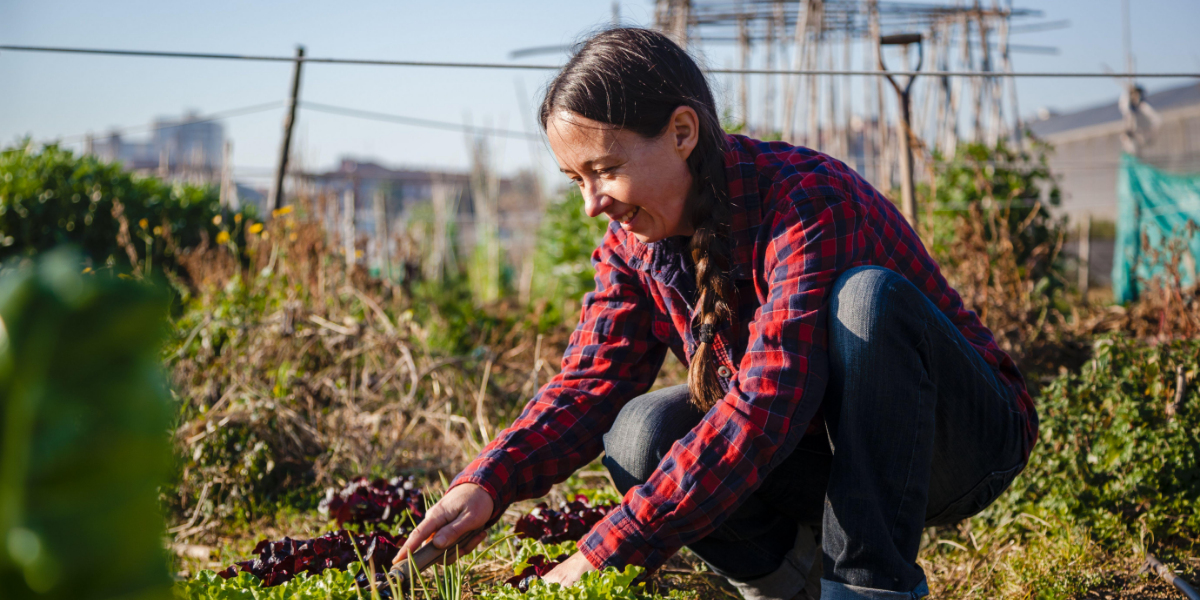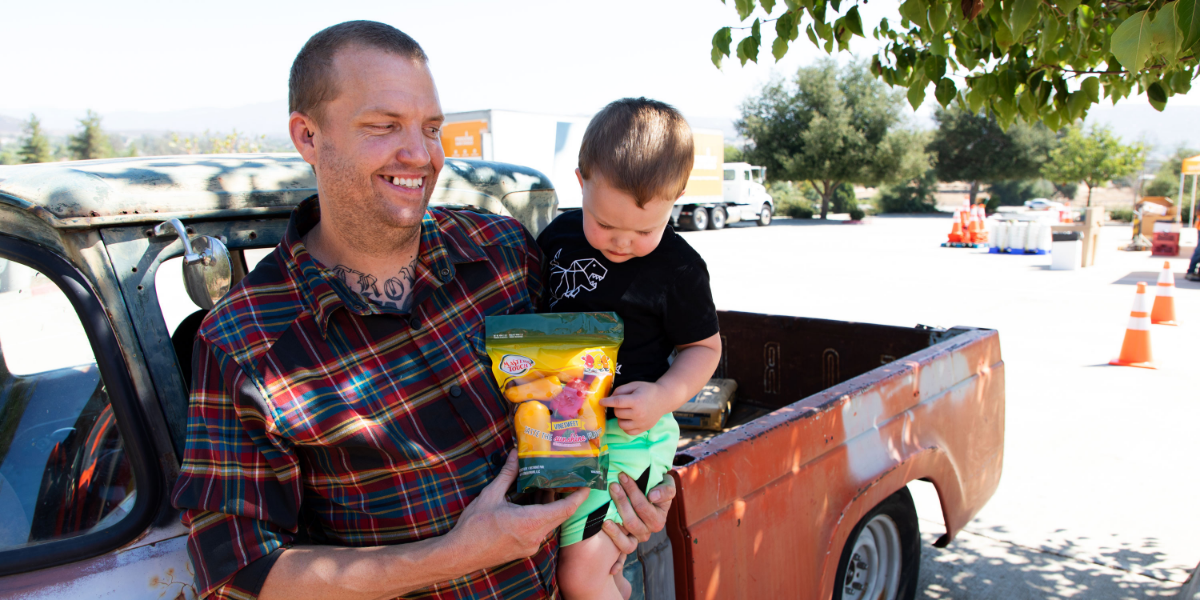This blog post is part of a series related to the Community Food Grant Program, a $5.6 million grant program to support food security and food sovereignty for low-income communities and those with limited access to healthy foods.
Your food doesn’t just arrive magically on your table – it travels from the farm or ocean to a processor or manufacturer before appearing at a grocery store, cafeteria, restaurant or home kitchen. These food supply chains can be global, traveling thousands of miles to feed millions of people, with the dominant food chains controlled by a select few international corporations.
Or they can be local, sustainable and equitable, with food arriving at your table directly from one of San Diego’s many farms or local fisheries. But why would we want to shorten the food supply chain to focus on local food producers? Unfortunately, not everyone has the luxury of time to investigate the origins of their food or explore purchasing food from local providers.
Shortening food supply chains
Food supply chains include everything from the storage and aggregation of food to its processing, distribution and marketing. These food supply chains can range from short and direct to long and circuitous, often straddling international borders. Decisions made across the supply chain can significantly influence the sustainability and equity of our food system.
One of the best examples of how we can shorten the food supply chain comes courtesy of a joint project between the Jacobs & Cushman San Diego Food Bank and Foodshed, a local nonprofit that helps small farms distribute food.
As part of the SDF Community Food Grant Program, Foodshed and the Jacobs & Cushman San Diego Food Bank are building lasting, collaborative and reciprocal relationships with local farms led by Black, Indigenous and people of color to address food insecurity in our region’s most vulnerable communities.
This investment also builds the capacity of local farmers, enhances the food security resiliency of vulnerable populations and promotes the food sovereignty of the region for all involved.
Other projects helping shorten the local food supply chain and funded by the Community Food Grant Program include Brightside Produce, which is run by San Diego State University Research Foundation and provides local fresh produce to corner markets and convenience stores located in food deserts, and SunCoast Market Cooperative, a resident-led effort to improve healthy food access and create a better food system by opening a community owned and governed food co-op in Imperial Beach.
Negative waste and climate impacts
The food supply chains that dominate the U.S. can be shockingly long, creating a literal and figurative distance between producers and consumers. In addition, these long food supply chains suppress biological and cultural food diversity, accelerate market concentration until only a few companies control most of food production, and circumvent the right of communities to food sovereignty, or their ability to determine the quantity and quality of food by controlling how it is produced and distributed.
These global food supply chains also push prices down for producers and generate significant waste. In fact, transporting ingredients and food products accounts for nearly one-fifth of all carbon emissions in our food systems.
Importance of buying local
By buying local, which creates shorter food supply chains comprised mostly of local producers and food businesses, consumers can create a more equitable and sustainable alternative to the global food supply chain.
San Diegans are in a unique position, too – the region is home to the largest number of small farms in the country and also boasts local fisheries, thanks to our location on the Pacific Ocean.
By buying local, small and midsize food producers are able to capture a greater share of consumers’ dollars, connect with local markets and feed local residents. That investment in local food production also reduces the road that food travels to get to consumers – creating fewer carbon emissions and reducing waste.
About the Community Food Grant Program
Funding for the Community Food Grant Program was made possible through a partnership with County of San Diego. In 2021, the San Diego County Board of Supervisors approved the framework for the use of American Rescue Plan Act funding, including the framework for the program.
The Community Food Grant Program contributes to building resilient communities, a pillar of the SDF Strategic Plan, by addressing equity barriers and creating a more inclusive and accessible food system for all. Learn more about the Community Food Grant Program partners.



